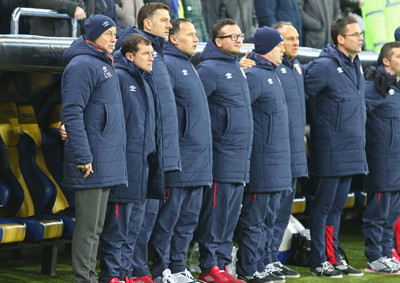 When it comes to discussing football teams, everyone knows the major players involved.
When it comes to discussing football teams, everyone knows the major players involved.
Even those with only a passing interest in the sport will be able to tell you that there’s a manager who is in charge of picking the players and they’ll know that, rather obviously, there’ll be players, but what of the other staff involved in a football club? What other roles are there that are fulfilled, helping make life easier for the man at the top of the tree as well as those that have to take to the field on a regular basis?
This article explores that every question, taking a look at the different jobs involved in the backroom staff of a football club. It’s worth pointing out straight away that the list is not exhaustive. There will doubtless be jobs and roles that we’ve either forgotten about or didn’t know existed.
Likewise, there will be some clubs that don’t use half of the personnel that we mention here. This list is mainly relevant for the clubs at the top of the footballing league table, with teams below the likes of the Premier League and La Liga only employing those that they can afford or deem to be essential. For that reason, take everything here with a pinch of salt.
The Assistant Manager
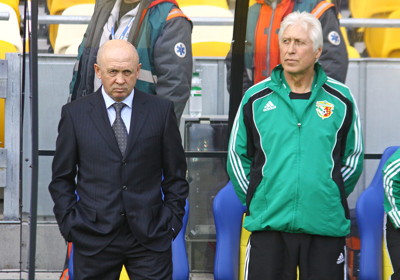 The role of an assistant manager can vary hugely depending on what the manager themselves want to do. Some managers see their job as being picking the team and giving instructions / tactics to the players but don’t think that the actual coaching is their responsibility.
The role of an assistant manager can vary hugely depending on what the manager themselves want to do. Some managers see their job as being picking the team and giving instructions / tactics to the players but don’t think that the actual coaching is their responsibility.
Other managers are very much hands-on, heading down to the training pitch on a regular basis in order to work with players both individually and as a whole. Whatever they don’t do, the assistant manager typically tends to pick up the slack.
Generally speaking, an assistant manager would likely work alongside the manager in picking the team and the formation that the team is going to play during a match.
It will be their responsibility to speak to the physiotherapist and club doctors to see which players are available to train, how the injured players are getting along in their recovery and so on. They’ll they report this back to the manager. They will also figure out the sessions that are needed for training, concentrating on specific things such as defending set-pieces, working on transitions or some other important task. Assistant managers will also usually take the players through their warm-ups before a match and warm-downs afterwards.
The Goalkeeping Coach
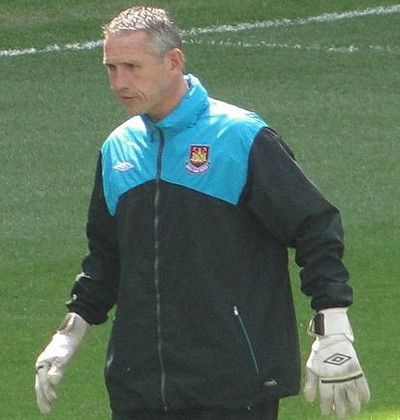
This is a role that’s reasonably self-explanatory. The goalkeeping coach will work specifically with the club’s goalkeeper to get them ready for a match. The actual things that they do will vary from week to week, usually dictated by the opposition.
If the team that they’re up against tend to play a lot of long balls and have a strong, tall striker, for example, then they might use rugby pads to ‘rough up’ the ‘keeper as they come for crosses. Equally, if it looks as though the game is likely to go to penalties then they’ll practice spot-kicks and look at the penalty takers and the way that they tend to shoot.
A goalkeeping coach’s job is crucial as they work with the player that is isolated throughout most of the match. They’ll do things like look at the opposition’s strikers and see how they tend to play, informing the goalkeeper about their favoured foot, whether the tend to shoot across goal or at the near post and so on.
They’ll also work with the goalkeeper on their distribution and the way that they set-up for set-pieces. They’ll usually communicate with the manager over those sorts of things, figuring out whether they want them to get rid of the ball quickly or hold on to it, or whether they’d like them to play it short to the defenders near them or go long to the midfielders and strikers. They’ll also work closely with the…
Chief Analyst
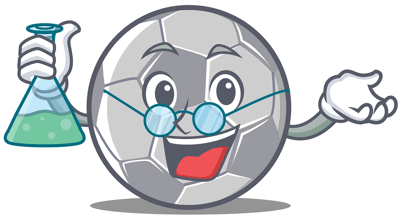 The analysts at a football club are responsible for doing analyse of the opposition ahead of a game, reporting to the manager about how the team that they’re about to play like to set-up, how they’ve tended to perform against sides that set-up un a similar way to their team and other areas worthy of investigating.
The analysts at a football club are responsible for doing analyse of the opposition ahead of a game, reporting to the manager about how the team that they’re about to play like to set-up, how they’ve tended to perform against sides that set-up un a similar way to their team and other areas worthy of investigating.
This fits in with how the likes of the goalkeeping coach will work, given that if they know that a team tends to go long to their bulky striker then the goalkeeper will need to be ready for that sort of thing.
The analyst will also provide the manager with retrospective analysis on the way his own team performed in previous matches. That can involve both the game that has recently taken place and also previous matches that the side has played against the upcoming opposition.
It allows the manager and his assistants to think about what needs to change from one game to the next or what the players need to improve in order to be at their best for the upcoming game.
Fitness Coach
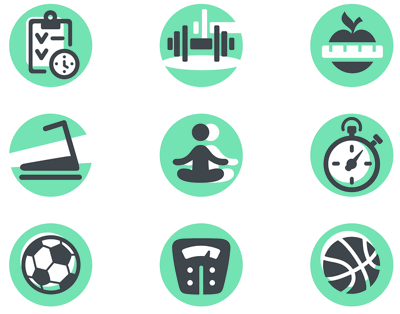 The job of the fitness coach is arguably one of the most important in football. They have to look at the season as a whole and figure out how to work with the players in order to ensure that they’re fitness lasts throughout the season. T
The job of the fitness coach is arguably one of the most important in football. They have to look at the season as a whole and figure out how to work with the players in order to ensure that they’re fitness lasts throughout the season. T
hey can’t make players train too hard at the start of the campaign as they’ll then be tired towards the end of it, but equally they can’t allow them to be too laid back after the summer or else they’ll be caught cold once the season gets underway.
The fitness coach also has to think about individual training for the different players. If they work with a player who has had a bad knee in the past, for example, then they won’t want them doing too many exercises that will put that knee under lots of strain and it further damage.
They’ll also need to weigh up the importance of getting players ready for the full season as well as for the upcoming match, coming up with training regimes that will tick both boxes. Different players work and get fit at different rates, so that will need to be taken into account. They will work closely with the…
Conditioning Coach
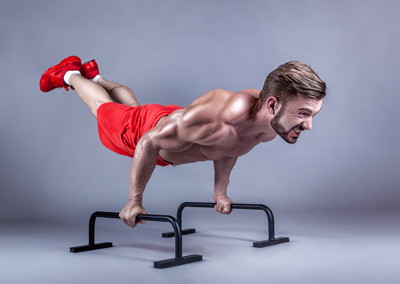 The work of a conditioning coach is similar to that of a fitness coach in many ways, which is why the two will work so closely together.
The work of a conditioning coach is similar to that of a fitness coach in many ways, which is why the two will work so closely together.
Conditioning coaches come up with programs and systems that allow players to become stronger, faster and more powerful. They can be thought of as being similar to personal trainers, working with players individually in order to ensure that they improve their weaknesses wherever possible.
As well as through the usual methods that you’d expect a conditioning coach to work with, such as in a gym and on the weightlifting equipment, more and more conditioning coaches are seeing the importance of doing things like yoga and calisthenics in order to strengthen the body and the inner core.
Their role is all about getting players fit and improving individual aspects of their performance. They will get information from a physiotherapist in order to know what players can and can’t do.
Chef / Nutritionist
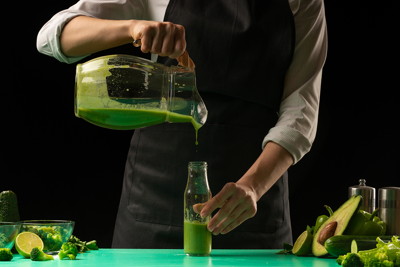 Any coach that works with players will also want them to ensure that they’re having the best diet possible, which is where a club’s chef and nutritionist will come in handy.
Any coach that works with players will also want them to ensure that they’re having the best diet possible, which is where a club’s chef and nutritionist will come in handy.
Many normal people will head to the gym and work hard, wondering why their body isn’t changing or they’re not losing weight because they forget just how important nutrition is in the whole process. There are countless different aspects to the job of a nutritionist, needing to come up with meal plans that are healthy but that also ensure that players are getting everything that they need. They will need to offer players a decent carbohydrate intake ahead of a training load, spreading that out over all of the meals through the day.
The key thing that a nutritionist needs to be able to do is ensure that the meals are tasty as well as offering a player what they need. Oftentimes they’ll need to do their best to make the meals easy to cook, knowing that either the players themselves or their family will be cooking their evening meals. What a player needs to eat will be different before a match and after one, to say nothing of when kick-off times differ. It’s much harder to persuade a player to eat a steak at eight in the morning ahead of a lunchtime kick-off, for example, than it is late in the afternoon ahead of an evening game.
Coming up with the right sort of diet that can be eaten at the right time of day is invaluable, with players not wanting to be sluggish or tired mid-game because they’ve eaten the wrong thing.
Physiotherapist
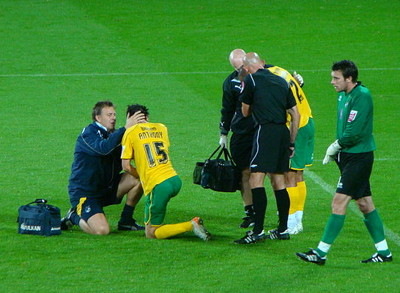
Physiotherapists work with players to help them recover from injuries or to ensure that previous injuries don’t flair up again because of their work with the fitness or conditioning coaches. They will be called upon by the fitness sections of the club to help assess a player’s injury and ability to work ahead of a match, amongst other things. Physio can be used to help players with muscle issues, musculoskeletal issues and even the likes of posture problems.
Physiotherapists will work closely with players during their recovery period after an injury, making sure that they don’t rush back too quickly and are doing appropriate exercises to help them recover as soon as they can.
They’ll usually be asked to create training programs and create holistic approaches to player recovery, aiming to ensure that they there is then less chance of a player picking up a similar injury in the future. Such is the nature of football, the likelihood is that players will be weaker after an injury and so physios have the role of trying to help them get as close to normal as possible.
Of course physios along with club doctors also have an on pitch role to quickly assess injuries to define if a player can play on or should be substituted. Of course a lot of the time this is just done for time wasting.
Masseur
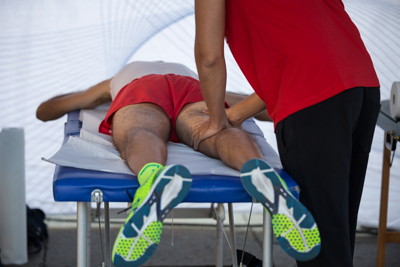 When it comes to football, a masseur is one of the under-rated jobs that means a lot to the players. Imagine running non-stop for forty-five minutes, getting a fifteen minute rest and then doing it all over again.
When it comes to football, a masseur is one of the under-rated jobs that means a lot to the players. Imagine running non-stop for forty-five minutes, getting a fifteen minute rest and then doing it all over again.
The toll that that takes on your muscles can be unforgiving, so the tension you will carry in them as a result can lead to to you seizing up or getting cramps very easily. It’s the job of the masseur to stop that from happening, helping players to unwind after a match or a training session.
A masseur helps players to get rid of the waste product that tends to build up in the muscles during exercise, reducing swelling and helping to oxidise the muscles.
They will also decide which type of massage is best for a player, usually opting for the soft-tissue variety but also offering more stimulating varieties when necessary.
Scout
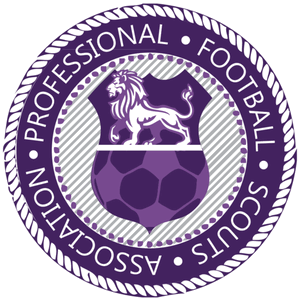
In terms of the development of the squad, a scout’s role is crucial. They have to know what position in the team the manager wants to strengthen and then travel to see players who play that role and whether they do what the manager is after.
Obviously different managers will look for different attributes, so a scout needs to ensure that they’re on the same page as the man at the top and can identify attributes that they’ll want from their players.
The top clubs also have a number of scouts who will each cover different areas of the world. They will work in close association with the different clubs in those areas to make sure that they are aware of emerging talent and are able to meet with them, discuss their wants and desires for the future and plant the seed of that player playing for the club that they represent.
A scout’s job is to spot talent and sometimes they’ll need to do this in players that others might have missed. Unearthing a gem can make all the difference for a club, meaning that scouts will look anywhere and everywhere for a possible acquisition.
Kit Manager
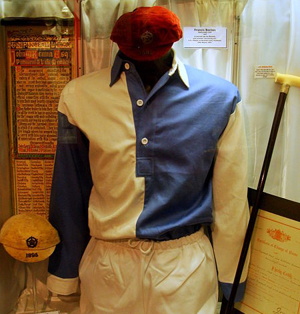
In days of yore, kids that had forgotten their kit for school sports would be made to play in their uniforms or worse. Obviously that’s not an option for players at the top sports teams, so they have kit managers who are responsible for virtually every item of clothing that a player will wear on the pitch.
They’re also responsible for the clothing of the backroom staff, of course, so managers will let them know whether they prefer to wear training kits or suits when they’re on the sidelines.
Kit managers also take on the responsibility of cleaning the kits, blowing up the footballs that the players will practice with and look after the football boots. It’s this latter position that is arguably the most important, given that players feel understandably precious about what they wear on their feet for football matches.
The kit manager will work with the players to understand what they want from a football boot, how they want them to be prepared and so on.
Youth Team Coach
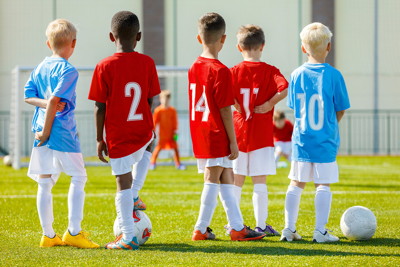 The youth team coach will work both in coordination with managers and separate from them. Some managers don’t care about the youth team, leaving them to develop at their own pace and in their own way.
The youth team coach will work both in coordination with managers and separate from them. Some managers don’t care about the youth team, leaving them to develop at their own pace and in their own way.
Other managers think it’s a crucial part of the club overall, even to the extent that they will overhaul the youth system to ensure that they train and work in the same way that the first-team does. That way, if players need to be promoted to the senior team because of illness or injury then it won’t be too much of a shock to their system.
Youth team coaches need to think about how individual players are developing and do what they can to help them become the best players that they can possibly be.
They’ll also speak to managers that are interested to know which ones will benefit from working with the first-team, perhaps heading along to training sessions or to speak to the manager about their future. The best managers will give players a chance in the first-team squad when they can, knowing that it will persuade other players to try harder in training as there’s the possibility that they will get to play with the main team. Often the youth team is seen as the future of the club, meaning that there’s a lot of pressure on youth team coaches with little reward.
